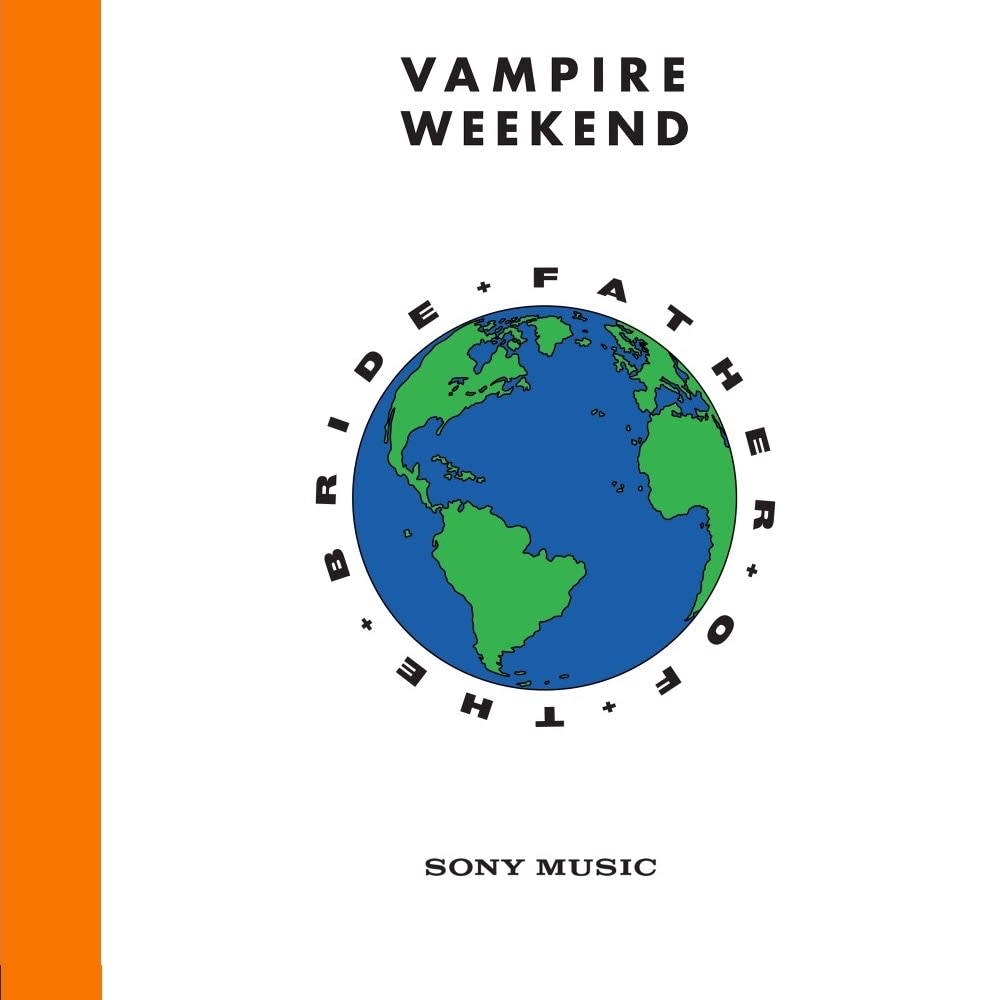In the sphere of indie music, you’d be hard pressed to find a more historically polarizing band than Vampire Weekend. Their eponymous debut album accrued critical acclaim from dozens of publications, and soared to the 17th spot on the Billboard 200 during its initial release. Yet, for such a popular release, Vampire Weekend is an album that maintains a great deal of distance between the band and the listener- drawing in as many listeners as it alienated.
Frontman Ezra Koenig and his Ivy League cohorts have favored the abstract and the oblique since the beginning. Koenig’s lyrics come across as ciphers and riddles, and the accompanying instrumentals are as subtly perplexing as a Möbius strip. It’s this sense of unease, though, which piqued the interest of fans. However, Vampire Weekend has typically maintained this arms-length distance, occupying a space not unlike that of the semi-secret elite club depicted on their debut album cover.
On their fourth studio album, Father of the Bride, Vampire Weekend have finally opened up. The band shifts course to explore more intimate and accessible territory, all while maintaining the sonic idiosyncrasies that set the band apart from the indie pop pack.
Vampire Weekend clarifies this new direction at the very start of the album with the opener track “Hold You Now.” Featuring an Americana style ballad between Koenig and Danielle Haim, the track sets the tone for the rest of the 17 tracks, embodying a wry sense of humor and shimmering levity amidst despair. Interwoven between the narrative are themes of religion, further underscored by the inclusion of a sample of “God Yu Tekem Laef Blong Mi” from Hans Zimmer’s 1999 soundtrack to The Thin Red Line.

While “Hold You Now” signifies a surprising diversion from past proclivities, the following track “Harmony Hall” includes elements of Vampire Weekend’s signature baroque sound framed within a different structure. Featuring an aptly harmonized acoustic guitar line, quaint piano passages, and smatterings of choral accompaniments, “Harmony Hall” marries dread with anxiety in a way that has never been catchier.
It’s refreshing to hear Vampire Weekend utilize their sound in new contexts, but the most satisfying moments on Father of the Bride come when the band completely steps outside of their comfort zone. “Sympathy” gallops with the swagger of a dust-coated desperado as Koenig sings alongside an assemblage of acoustic guitar strums, hand claps, and woody bass lines. “Flower Moon,” which features one of the most unique voices in modern indie pop, Steve Lacy, is equally refreshing. Lacy’s guitar work is weaved into a plucky, Latin-flavored shuffle that dissolves into what ostensibly is recorded chatter at a restaurant. It’s as if the song is a daydream, and Lacy’s soft voice slowly ushers listeners back into reality.
In the end, what sets Father of the Bride apart from the rest of Vampire Weekend’s discography is its desperate vitality. It’s an album rife with tensions and anxieties for which the content provides no answers, but simultaneously filled with an undeniable desire to endure, thrive, and evolve. Father of the Bride is brimming with palatable, diverse, and meaningful content that invites listeners both new and old to rejoice in the beautiful struggle of life.
4 out of 5 stars.



